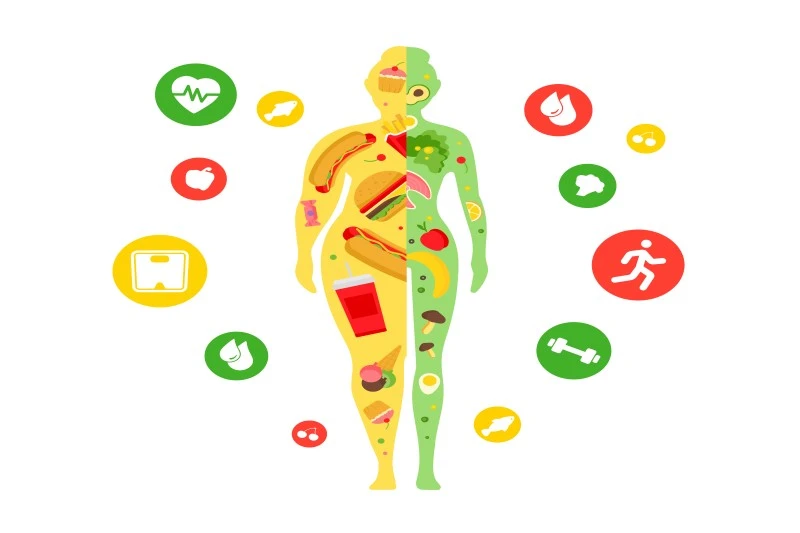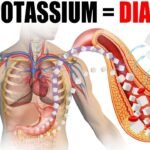Table of Contents
Frustrated with conflicting information about low-calorie diets and intermittent fasting? Uncover the truth about how these popular approaches actually impact your Metabolism. Learn to optimize your weight loss journey by understanding the science behind calorie restriction and fasting. Dive into this article and finally separate fact from fiction about metabolic slowdown, fat burning, and achieving sustainable results.
Brief The Article:
Are Low-Calorie Diets and Intermittent Fasting the Same?
- No! They are fundamentally different approaches. While both may contribute to weight loss, they have distinct effects on the body and metabolism.
Low-Calorie Diets: Potential Downsides
- Slowed Metabolism: Continuously restricting calories can slow down your metabolism, making it harder to lose weight in the long run.
- Muscle Loss: Low-calorie diets can lead to muscle breakdown and weakness, which can further impede metabolic function.
- Increased Cravings: Constant hunger and cravings for carbs and sweets are common side effects of restrictive calorie intake.
- Hormonal Imbalances: Many low-calorie diets fail to consider the hormonal impact of foods. They ignore how constant eating, even in small amounts, can disrupt hormone balance and lead to insulin resistance, hindering fat burning.
- Nutrient Deficiencies: A focus on reducing calories often neglects the importance of nutrient density. Some calories are packed with nutrients, while others offer little nutritional value.
Intermittent Fasting: Benefits
- Boosted Metabolism: Done correctly, intermittent fasting can increase your metabolic rate, making weight loss more sustainable.
- Muscle Preservation: Intermittent fasting helps maintain and even improve muscle mass due to the increase in growth hormone.
- Reduced Cravings: Intermittent fasting, when done properly, actually reduces cravings and hunger, leading to more sustainable weight management.
- Fat Burning: Alternating between periods of eating and fasting effectively promotes fat burning.
- Improved Insulin Sensitivity: Intermittent fasting promotes insulin sensitivity, making it easier for your body to regulate blood sugar and avoid insulin resistance, a key factor in weight gain and metabolic disease.
Key Differences
- Low-Calorie Diets: Focus on reducing calorie intake.
- Intermittent Fasting: Focus on reducing eating frequency. Intermittent fasting doesn’t restrict calories during eating windows; it focuses on establishing periods of eating and extended periods of not eating.
In Conclusion:
- Low-Calorie Diets: Generally considered less effective for long-term weight management and overall health due to their potential to slow metabolism, trigger cravings, cause nutrient deficiencies, and negatively affect hormone balance.
- Intermittent Fasting: Can be a powerful tool for promoting a healthy weight, boosting metabolism, and optimizing hormonal balance. When done right, it can be a more sustainable approach for weight loss and better overall health than strict, continuous calorie restriction.
So let’s dive into the details…
Is a low-calorie diet the same as intermittent fasting?

In this topic, I want to talk about low-calorie diets versus intermittent fasting. The confusion that people have is they think that it’s the same exact thing. No, it’s completely the opposite thing.
Impact on Metabolism
So low-calorie diets actually slow your metabolism. Actually, it ruins your metabolism. It takes the setpoint and it raises it. So before you could get your weight down to this way, now it keeps rising, and it was just like your body gets comfortable at a certain weight like say 185 pounds, and you can’t seem to get below that.
Intermittent fasting, if done correctly, speeds up your metabolism. It lowers the setpoint. It allows your weight to go down. It’s the only thing that I know them as a tool that you can fix and heal your metabolism.
Key Differences in Metabolism:
- Low-calorie diets: Slow down metabolism
- Intermittent fasting: Speeds up metabolism
- Low-calorie diets: Raise setpoint
- Intermittent fasting: Lowers setpoint
Low-calorie diets vs. intermittent fasting

Effects on Muscle Tissue
Okay, so low-calorie diets create a breakdown of muscle tissue. It makes you weaker over time. Intermittent fasting causes improvement in muscle and it retains protein and muscle tissue. And that’s because of the hormone called growth hormone that’s triggered when you do intermittent fasting.
Comparison of Effects on Muscle:
| Low-Calorie Diets | Intermittent Fasting |
|---|---|
| Breakdown of muscle tissue | Improvement in muscle |
| Makes you weaker over time | Retains protein and muscle tissue |
Impact on Cravings and Hunger
Low-calorie diets caused cravings to carbs and sweets. It also keeps you hungry because it’s depriving you. Intermittent fasting, you have no cravings, you have no hunger. So the way that you know that you’re in intermittent, you’re actually doing this correctly is when your cravings go away. If you’re going to do a program then your craving, you’re not doing it correctly, and you’re not really in fat-burning.
Fat-Burning and Hormonal Effects

When you’re doing this, low-calorie diets do not put a person in fat-burning. Intermittent fasting does put a person in fat burning because it influences hormones. Low-calorie diets ignores the hormone aspects of what calories influenced. So they don’t look at how food triggers hormones: insulin, cortisol, estrogen. They basically say all calories are the same, just eat in moderation, just reduce your overall calorie. Bad advice.
Intermittent fasting done correctly looks at the hormone aspects like specifically insulin because when you do intermittent fasting, you’re eating and then you’re not eating, and then you’re eating and you’re not eating. So when you don’t eat, you don’t trigger insulin. When you do low-calorie diets, a lot of times you’re grazing and you’re snacking, but you’re having just little amounts of that thing.
Nutrient Consideration
Low-calorie diets typically ignore the nutrients in the calories. They kind of look at, again, a calorie is a calorie, but there’s certain calories that are more nutrient-dense than others, right? So that’s the difference.
Summary of Approaches:
- Low-calorie diets: Reduction of calorie intake
- Intermittent fasting: Reduction of frequency of eating
This is basically reduction of calorie. This is a reduction of frequency of eating. This is not lowering your calories when you eat.
Proper Intermittent Fasting Approach

So when you do intermittent fasting correctly, you want a meal of course that doesn’t have sugar. You want a meal that has healthy fat.
You want a meal that has a moderate amount of protein, and you want a meal that is nutrient-dense, a lot of vegetables. But you’re never going to be cutting calories.
You’re going to have a nice big meal menu. That’s supposed to get you to switch over to fat burn when you’re not eating, going for a long period of time.
We’re really talking like if you did three meals a day or even twice a day and then not eating between them, that’s the form of intermittent fasting. But I just want to clarify the difference so you really get this. This is really bad, this is really good.
Summary
Low-calorie diets:
• Slow your metabolism
• Raises your set point (you can’t lose weight once you hit a certain point that’s typically high)
• Decrease muscle
• Increase cravings and hunger
• Don’t put a person in fat-burning
• Ignore how food triggers certain hormones
• Ignore the nutrients in the calories
Intermittent fasting:
• Speeds up metabolism
• Lowers your set point (allows your weight to go down)
• Improves muscle by triggering growth hormone
• Decreases cravings and hunger
• Puts a person in fat-during
• Considers the hormone aspects, especially insulin
• Promotes eating nutrient-dense foods when eating
- Low-calorie diets focus on restricting calories, but intermittent fasting focuses on restricting the frequency of eating. Intermittent fasting doesn’t lower your calories when you do eat.
- With intermittent fasting, when you do eat a meal, you want it to have healthy fats, a moderate amount of protein, and nutrient-dense vegetables. Having a nice big meal will help you switch over to fat-burning when you’re fasting and help make it easier to fast. A great form of intermittent fasting is having two meals a day without snacks.
Additional-resources
FAQ
Do Low-Calorie Diets Slow Your Metabolism?
Yes, prolonged and severe calorie restriction can slow down your metabolism. This is a natural survival mechanism where your body tries to conserve energy when it senses a shortage. However, the extent of this slowdown is often overstated. Factors that influence the metabolic slowdown include the severity and duration of the calorie deficit, your initial body composition, and your activity levels. Focus on sustainable calorie deficits and incorporating strength training to minimize muscle loss and mitigate metabolic slowdown.
Does Intermittent Fasting Work Because of Less Calories?
While intermittent fasting can lead to calorie restriction, its benefits extend beyond simply eating less. IF influences various metabolic processes, including increased growth hormone production, improved insulin sensitivity, and cellular repair mechanisms like autophagy. These processes can contribute to weight loss and overall health improvements, even without significant calorie reduction in some cases.
Does Your Metabolism Change if You Eat Less?
Yes, your metabolism adapts to changes in your energy intake. Eating less can lead to a slight decrease in your resting metabolic rate (RMR), but this is often less dramatic than many believe. The body becomes more efficient at using energy. However, incorporating strategies like resistance training, adequate protein intake, and sufficient sleep can help mitigate this effect.
How Does Metabolism Change During Fasting?
During fasting, your body transitions from using glucose (from food) as its primary energy source to burning stored fat. This shift promotes fat breakdown and can lead to increased levels of ketones, which can provide energy for the brain and other organs. Additionally, fasting can trigger cellular repair processes and potentially improve insulin sensitivity.
Intermittent Fasting Ruined My Metabolism
This is a common concern, but it’s unlikely that intermittent fasting alone “ruined” your metabolism. More likely, other factors like extreme calorie restriction, insufficient protein intake, lack of exercise, or underlying health conditions could be contributing to metabolic issues. It’s important to consult with a healthcare professional to identify the root cause.
Does Intermittent Fasting Boost Metabolism?
While some studies suggest that intermittent fasting can slightly increase metabolism, the evidence is not conclusive. The primary benefit of IF likely lies in its ability to promote fat burning and improve hormonal balance rather than a significant boost in metabolic rate.
How to Stop Your Metabolism from Slowing Down When Dieting
- Avoid drastic calorie restriction: Aim for a moderate calorie deficit (250-500 calories per day).
- Prioritize protein intake: Protein helps preserve muscle mass and keeps you feeling full.
- Engage in regular exercise: Include both strength training and cardio in your routine.
- Get enough sleep: Sleep deprivation can negatively impact metabolism.
- Stay hydrated: Drinking plenty of water is crucial for overall health and metabolic function.
Does Fasting Slow Down Metabolism?
Short-term fasting generally doesn’t slow down metabolism significantly. In fact, it can trigger metabolic adaptations that promote fat burning and improve insulin sensitivity. Prolonged and extreme fasting, however, can lead to metabolic slowdown.
How to Increase Metabolism While Fasting
- Stay active: Light to moderate exercise during fasting periods can help maintain muscle mass and support metabolism.
- Drink plenty of water: Proper hydration is essential for optimal metabolic function.
- Consume black coffee or tea: These beverages can provide a slight metabolic boost without breaking your fast.
- Focus on nutrient-dense foods during eating windows: Choose whole, unprocessed foods rich in vitamins and minerals.
Intermittent Fasting Metabolism Study
Numerous studies are investigating the effects of intermittent fasting on metabolism. Research suggests that IF can improve insulin sensitivity, promote fat burning, and potentially offer other metabolic benefits. However, more research is needed to fully understand its long-term effects.
Intermittent Fasting and Metabolism
Intermittent fasting and metabolism have a complex relationship. While IF may not significantly boost metabolic rate, it can influence various metabolic processes that contribute to weight loss, improved insulin sensitivity, and overall health.
Best Intermittent Fasting for Weight Loss
The best intermittent fasting method for weight loss depends on individual preferences and lifestyle. Popular methods include the 16/8 method, the 5:2 diet, and alternate-day fasting. It’s essential to choose a method that you can adhere to consistently and that fits your daily routine.




